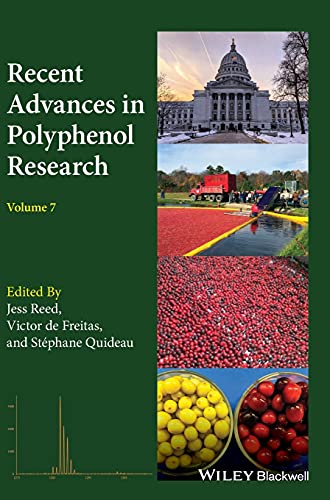

Most ebook files are in PDF format, so you can easily read them using various software such as Foxit Reader or directly on the Google Chrome browser.
Some ebook files are released by publishers in other formats such as .awz, .mobi, .epub, .fb2, etc. You may need to install specific software to read these formats on mobile/PC, such as Calibre.
Please read the tutorial at this link: https://ebookbell.com/faq
We offer FREE conversion to the popular formats you request; however, this may take some time. Therefore, right after payment, please email us, and we will try to provide the service as quickly as possible.
For some exceptional file formats or broken links (if any), please refrain from opening any disputes. Instead, email us first, and we will try to assist within a maximum of 6 hours.
EbookBell Team

4.3
58 reviewsPlant polyphenols are secondary metabolites that constitute one of the most common and widespread groups of natural products. They are essential plant components for adaptation to the environment and possess a large and diverse range of biological functions that provide many benefits to both plants and humans. Polyphenols, from their structurally simplest forms to their oligo/polymeric versions (i.e. tannin and lignin), are phytoestrogens, plant pigments, antioxidants, and structural components of the plant cell wall. The interaction between tannins and proteins is involved in plant defense against predation, cause astringency in foods and beverages, and affect the nutritional and health properties of human and animal food plants.
This seventh volume of the highly regardedRecent Advances in Polyphenol Researchseries is edited by Jess Dreher Reed, Victor Armando Pereira de Freitas, and Stéphane Quideau, and brings together chapters written by some of the leading experts working in the polyphenol sciences today. Topics covered include:
Distilling the most recent and illuminating data available, this new volume is an invaluable resource for chemists, biochemists, plant scientists, pharmacognosists and pharmacologists, biologists, ecologists, food scientists and nutritionists.